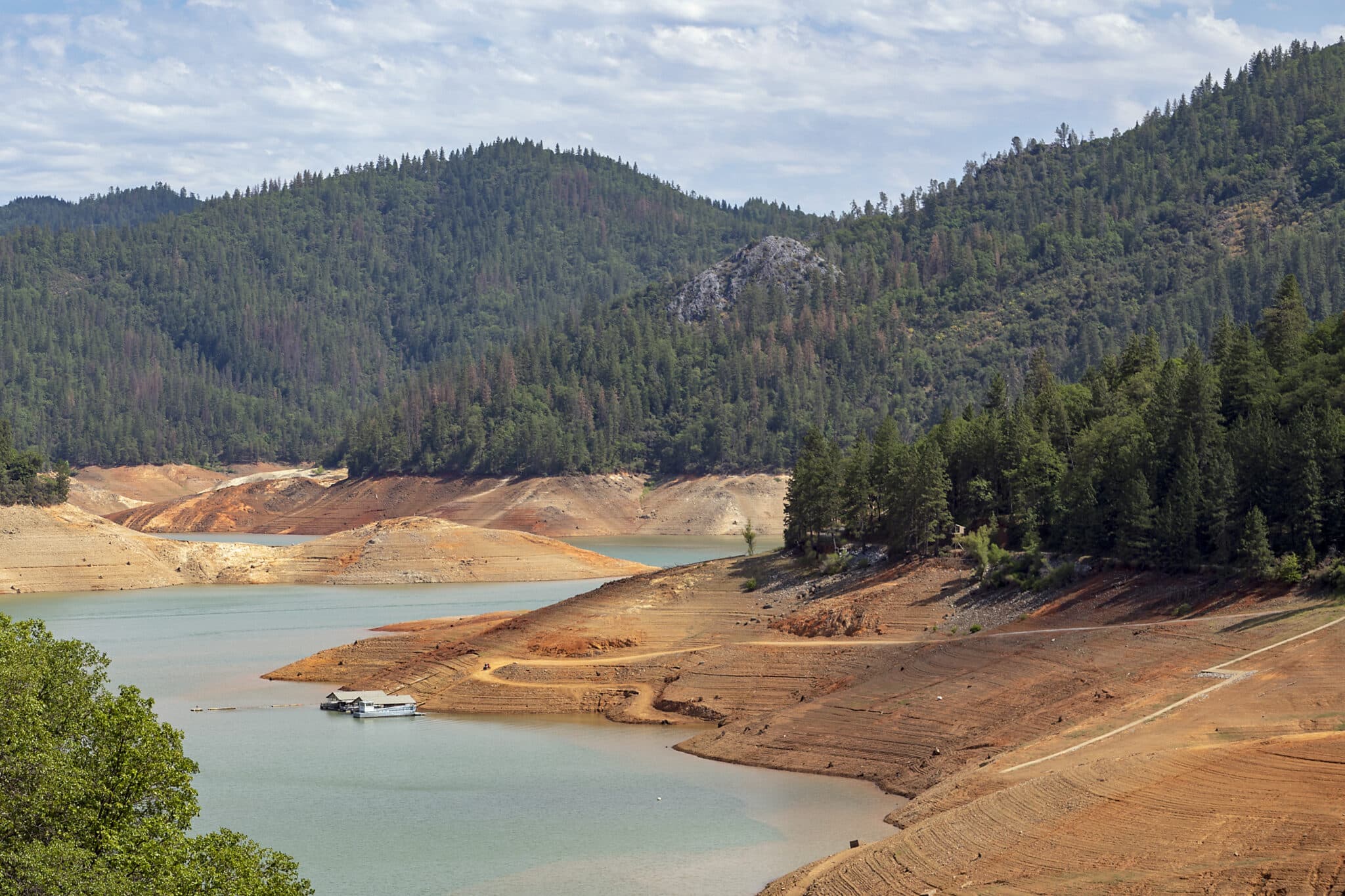EcoWatch
West’s Megadrought Is Worst in 1,200 Years
Olivia Rosane – Feb 15, 2022

Callifornia’s Shasta Lake depleted by drought. NNehring / E+ / Getty Images
The Southwestern U.S. is currently experiencing its worst megadrought in 1,200 years, a new study has found.
The research, published in Nature Climate Change Monday, found that the period from 2000 to 2021 was the region’s driest since at least 800 A.D.
“Anyone who has been paying attention knows that the west has been dry for most of the last couple decades,” study lead author and University of California, Los Angeles climate scientist Park Williams told The Guardian. “We now know from these studies that is dry not only from the context of recent memory but in the context of the last millennium.”
A megadrought is a dry spell that lasts for more than 20 years. These extended dry spells are naturally occurring in the region. However, the climate crisis has made the current drought 42 percent more extreme.
“The results are really concerning, because it’s showing that the drought conditions we are facing now are substantially worse because of climate change,” Williams told the Los Angeles Times. “But that also there is quite a bit of room for drought conditions to get worse.”
The researchers based their findings on evidence of past droughts recorded in tree rings from around 1,600 sites in the North American West, from Montana to Northern Mexico. They focused on droughts that lasted for 23 to 30 years.
The new study builds on previous research which found that the period from 2000 to 2018 was the driest since a megadrought in the 1500s. The extremely dry summer of 2021 “really pushed it over the top,” Williams told The New York Times, making the current 22 year period the driest since 800 A.D., which is the point at which the researchers’ data set begins. The study authors calculated that around 19 percent of the severity of 2021’s drought could be attributed to climate change.
The megadrought is already having major impacts across the region, the Los Angeles Times pointed out. It has depleted California’s reservoirs, shrunken Utah’s Great Salt Lake to record low levels and fueled extreme wildfires. And the bad news is that there isn’t necessarily an end in sight.
“This drought at 22 years is still in full swing,” Williams told The New York Times., “and it is very, very likely that this drought will survive to last 23 years.”
In fact, researchers believe it is likely to last as long as 30 years. Further, if it weren’t for the climate crisis, the drought would likely have ended in 2005 or 2006 when rainfall would have been enough to relieve it, The AP reported.
Julie Cole, a University of Michigan climate scientist who was not involved in the research, told The New York Times that the study shows how temperature can make more of a difference than precipitation when it comes to prologing a drought.
“[T]he air is basically more capable of pulling the water out of the soil, out of vegetation, out of crops, out of forests,” Cole said. “And it makes for drought conditions to be much more extreme.”
Average temperatures in the Southwestern U.S. have been 1.6 degrees Fahrenheit higher since 2000 when compared to the previous 50 years, according to the Los Angeles Times.
Jonathan Overpeck, the dean of environment at the University of Michigan who wasn’t part of the study, told The AP that it was an “important wake-up call.”
“Climate change is literally baking the water supply and forests of the Southwest, and it could get a whole lot worse if we don’t halt climate change soon,” he said.
